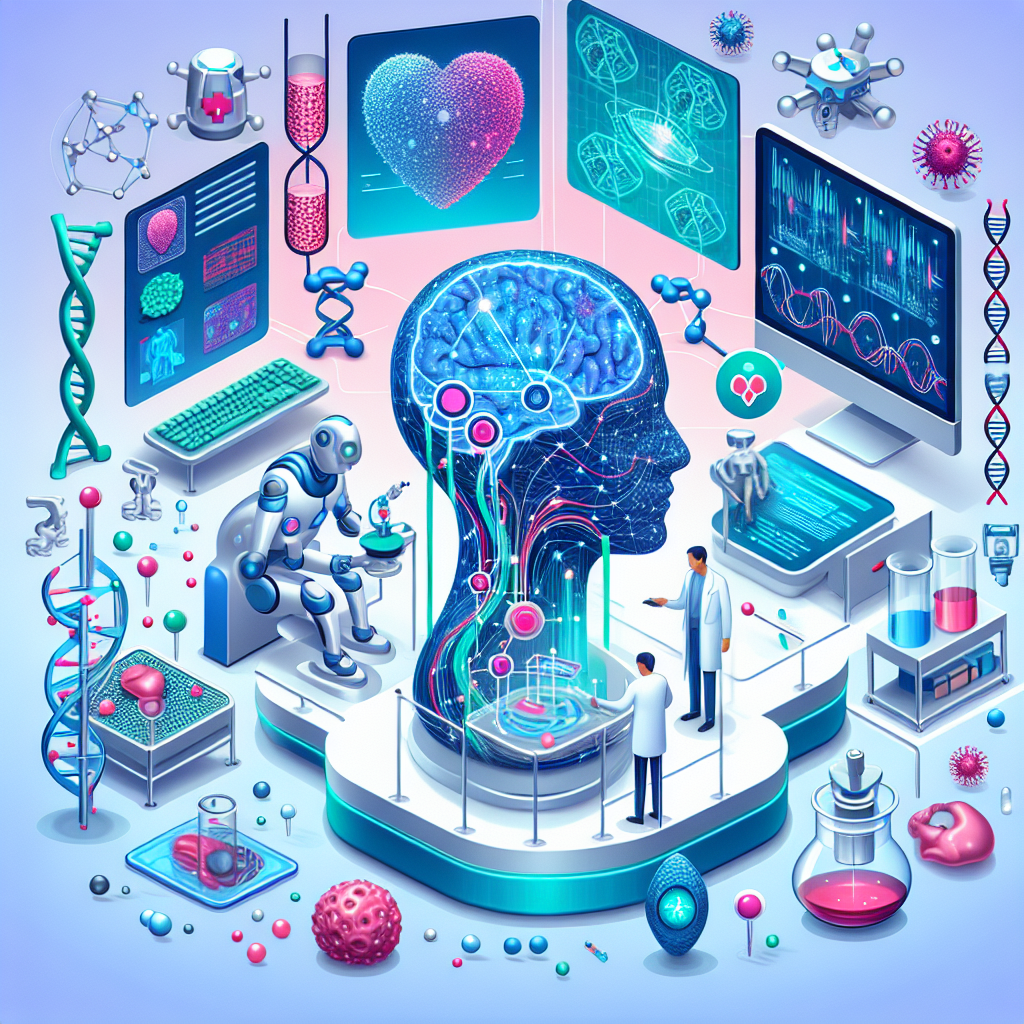Artificial intelligence (AI) has been making significant advancements in various fields, including healthcare. One area where AI is having a profound impact is in precision medicine, a cutting-edge approach to healthcare that takes into account individual variability in genes, environment, and lifestyle for each person.
Precision medicine aims to tailor medical treatment to the specific characteristics of each patient, allowing for more targeted and effective interventions. By leveraging AI technologies, healthcare providers are able to analyze vast amounts of data quickly and accurately, leading to more precise diagnoses and personalized treatment plans.
AI Deployment in Precision Medicine
AI deployment in precision medicine involves the use of machine learning algorithms and other AI tools to analyze complex biological and clinical data. These algorithms can identify patterns and relationships in data that may not be immediately apparent to human researchers, leading to new insights and discoveries. AI can also help identify patient subgroups based on genetic, environmental, and lifestyle factors, allowing for more targeted treatments.
One key area where AI is being deployed in precision medicine is in genomics. Genomic data is incredibly complex, with billions of data points for each individual. AI algorithms can sift through this data quickly and accurately, identifying genetic variations that may be associated with specific diseases or conditions. This information can then be used to develop personalized treatment plans for patients based on their genetic profile.
Another area where AI is making a significant impact is in medical imaging. AI algorithms can analyze medical images, such as CT scans, MRIs, and X-rays, to identify abnormalities or patterns that may indicate disease. This can help radiologists and other healthcare providers make more accurate and timely diagnoses, leading to better outcomes for patients.
AI is also being used in drug discovery and development. By analyzing vast amounts of data on drug compounds, AI algorithms can identify potential new drugs or repurpose existing drugs for different conditions. This can help speed up the drug development process and lead to more effective treatments for patients.
Advancing Treatments
The integration of AI into precision medicine is advancing treatments in several key ways:
1. Personalized Medicine: AI allows for the development of personalized treatment plans based on an individual’s genetic, environmental, and lifestyle factors. This can lead to more targeted and effective interventions, reducing the risk of adverse reactions and improving patient outcomes.
2. Early Detection: AI algorithms can analyze medical images and other data to detect diseases at an earlier stage. This can lead to earlier interventions and better outcomes for patients, as diseases are often more treatable when caught early.
3. Drug Development: AI is helping to speed up the drug development process by identifying potential new drugs or repurposing existing drugs for different conditions. This can lead to the development of more effective treatments for a wide range of diseases.
4. Precision Oncology: AI is playing a key role in the field of precision oncology, where treatments are tailored to the genetic profile of each individual’s tumor. By analyzing genomic data, AI algorithms can identify targeted therapies that may be more effective in treating specific types of cancer.
FAQs
Q: How is AI being used in precision medicine?
A: AI is being used in precision medicine to analyze complex biological and clinical data, identify patient subgroups based on genetic, environmental, and lifestyle factors, and develop personalized treatment plans for patients.
Q: What are some key areas where AI is making an impact in precision medicine?
A: AI is making an impact in genomics, medical imaging, drug discovery and development, and precision oncology.
Q: How is AI advancing treatments in precision medicine?
A: AI is advancing treatments in precision medicine by enabling personalized medicine, early detection of diseases, speeding up drug development, and improving outcomes in precision oncology.
Q: What are some potential benefits of AI deployment in precision medicine?
A: Some potential benefits of AI deployment in precision medicine include more targeted and effective treatments, earlier detection of diseases, faster drug development, and improved outcomes for patients.
In conclusion, AI deployment in precision medicine is revolutionizing healthcare by enabling personalized treatments, early disease detection, and faster drug development. By leveraging AI technologies, healthcare providers are able to analyze vast amounts of data quickly and accurately, leading to more precise diagnoses and personalized treatment plans. As AI continues to advance, the future of precision medicine looks promising, with the potential to transform the way we diagnose and treat diseases.

